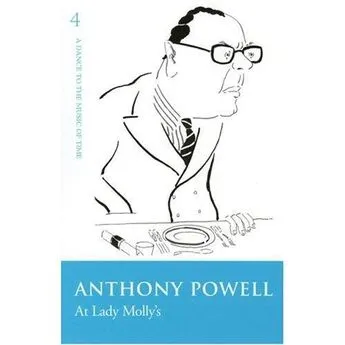Anthony Powell - A Buyers Market
- Название:A Buyers Market
- Автор:
- Жанр:
- Издательство:Arrow
- Год:2005
- ISBN:нет данных
- Рейтинг:
- Избранное:Добавить в избранное
-
Отзывы:
-
Ваша оценка:
Anthony Powell - A Buyers Market краткое содержание
Anthony Powell's universally acclaimed epic A Dance to the Music of Time offers a matchless panorama of twentieth-century London. Now, for the first time in decades, readers in the United States can read the books of Dance as they were originally published-as twelve individual novels-but with a twenty-first-century twist: they're available only as e-books. The second volume, A Buyer's Market (1952), finds young Nick Jenkins struggling to establish himself in London. Amid the fever of the 1920s, he attends formal dinners and wild parties; makes his first tentative forays into the worlds of art, culture, and bohemian life; and suffers his first disappointments in love. Old friends come and go, but the paths they once shared are rapidly diverging: Stringham is settling into a life of debauchery and drink, Templer is plunging into the world of business, and Widmerpool, though still a figure of out-of-place grotesquerie, remains unbowed, confident in his own importance and eventual success. A Buyer's Market is a striking portrait of the pleasures and anxieties of early adulthood, set against a backdrop of London life and culture at one of its most effervescent moments.
A Buyers Market - читать онлайн бесплатно полную версию (весь текст целиком)
Интервал:
Закладка:
She sounded disappointed at having missed such an opportunity to impress Barnby, though I thought the display would have annoyed rather than amused him; which was no doubt her intention.
“Won’t you be cold?”
“The place is going to be specially heated. Anyway, the weather is mild enough. Still, shut the door. There’s a bit of a draught.”
She sat down on the divan. That part of the shop was shut off from the rest by the screen in such a way as almost to form a cubicle. As Mr. Deacon had described, shawls or draperies of some sort were spread over the surface of this piece of furniture.
“What do you think of the fig leaf?” she asked. “I made it myself.”
I have already spoken of the common ground shared by conflicting emotions. As Barnby had remarked, the funeral had been “hard on the nerves,” and a consciousness of sudden relief from pressure was stimulating. Gypsy, somewhat altering the manner she had adopted on my first arrival in the shop, now managed to look almost prim. She had the air of waiting for something, of asking a question to which she already knew the answer. There was also something more than a little compelling about the atmosphere of the alcove: the operation perhaps of memories left over as a residue from former states of concupiscence, although so fanciful a condition could hardly be offered in extenuation. I asked myself whether this situation, or something not far from it, was not one often premeditated, and, although I still felt one half awake, not to be lightly passed by.
The lack of demur on her part seemed quite in accordance with the almost somnambulistic force that had brought me into that place, and also with the torpid, dream-like atmosphere of the afternoon. At least such protests as she put forward were of so formal and artificial an order that they increased, rather than diminished, the impression that a long-established rite was to be enacted, among Staffordshire figures and papier-mâché trays, with the compelling, detached formality of nightmare. Perhaps some demand, not to be denied in its overpowering force, had occasioned simultaneously both this summons and Mrs. Wentworth’s telephone call; each product of that slow process of building up of events, as already mentioned, coming at last to a head. I was conscious of Gypsy changing her individuality, though at the same time retaining her familiar form: this illusion almost conveying the extraordinary impression that there were really three of us — perhaps even four, because I was aware that alteration had taken place within myself too — of whom the pair of active participants had been, as it were, projected from out of our normally unrelated selves.
In spite of the apparently irresistible nature of the circumstances, when regarded through the larger perspective that seemed, on reflection, to prevail — that is to say of a general subordination to an intricate design of cause and effect — I could not help admitting, in due course, the awareness of a sense of inadequacy. There was no specific suggestion that anything had, as it might be said, “gone wrong”, it was merely that any wish to remain any longer present in those surroundings had suddenly and violently decreased, if not disappeared entirely. This feeling was, in its way, a shock. Gypsy, for her part, appeared far less impressed than myself by consciousness of anything, even relatively momentous, having occurred. In fact, after the brief interval of extreme animation, her subsequent indifference, which might almost have been called torpid, was, so it seemed to me, remarkable. This imperturbability was inclined to produce an impression that, so far from knowing each other a great deal better, we had progressed scarcely at all in that direction; perhaps, become more than ever, even irretrievably, alienated. Barbara’s recurrent injunction to avoid any question of “getting sentimental” seemed, here in the embodiment of Gypsy, now carried to lengths which might legitimately be looked upon as such a principle’s logical conclusion.
This likeness to Barbara was more clearly indicated, however, than by a merely mental comparison of theory, because, while Gypsy lay upon the divan, her hands before her, looking, perhaps rather self-consciously, a little like Goya’s Maja nude —or possibly it would be nearer the mark to cite that picture’s derivative, Manet’s Olympia , which I had, as it happened, heard her mention on some former occasion — she glanced down, with satisfaction, at her own extremities.
“How brown my leg is,” she said. “Fancy sunburn lasting that long.”
Were Barbara and Gypsy really the same girl, I asked myself. There was something to be said for the theory; for I had been abruptly reminded of Barbara’s remark, uttered under the trees of Belgrave Square earlier in the year: “How blue my hand is in the moonlight.” Self-admiration apart, there could be no doubt now that they had a great deal in common. It was a concept that made me feel that, in so far as I was personally involved in matters of sentiment, the season was, romantically speaking, autumn indeed, and that the leaves had undeniably fallen from the trees so far as former views on love were concerned: even though such views had been held by me only so short a time before. Here, at least, at the back of Mr. Deacon’s shop, some conclusion had been reached, though even that inference, too, might be found open to question. At the same time, I could not help being struck, not only by a kind of wonder that I now found myself, as it were, with Barbara in conditions once pictured as beyond words vain of achievement, but also at that same moment by a sense almost of solemnity at this latest illustration of the pattern that life forms. A new phase in conversation was now initiated by a question from Gypsy.
“What was the funeral like?” she asked, as if making a deliberate return to every-day conditions.
“Short.”
“I think I was right not to go.”
“You didn’t miss much.”
“It was a matter of conscience.”
She developed for a time this line of thought, and I agreed that, regarded in the light of her convictions, her absence might be looked upon as excusable, if any such severity of doctrine was indeed insurmountable. I agreed further that Mr. Deacon himself might have appreciated such scruples.
“Max Pilgrim was there.”
“The man who sings the songs?”
“He didn’t at the cremation.”
“There comes a moment when you’ve got to make a stand.”
I presumed that she had returned to the problems of her own conscience rather than to refer to Pilgrim’s restraint in having kept himself from breaking into song at the crematorium.
“Where will you stay now that the shop is coming to an end?”
“Howard says he can put me up once in a way at the Vox Populi. They’ve got a camp-bed there. He’s taking me to the party to-night.”
“What’s he going as?”
“Adam.”
“Is he arriving here in that guise?”
“We’re dining early, and going back to his place to dress up. Only I thought I must try out my costume first. As a matter of fact he is picking me up here fairly soon.”
She looked rather doubtful, and I saw that I must not overstay my welcome. There was nothing to be said for allowing time to slip by long enough for Craggs to arrive. It appeared that Gypsy was going to the country — it was to be presumed with Craggs — in the near future. We said good-bye. Later, as I made my way towards the Widmerpools’, association of ideas led inevitably to a reminder, not a specially pleasant one, of Widmerpool himself and his desires; parallel, it appeared, in their duality, with my own, and fated to be defrauded a second time. The fact that I was dining at his flat that evening in no way reduced the accentuation given by events to that sense of design already mentioned. Whatever the imperfections of the situation from which I had just emerged, matters could be considered with justice only in relation to a much larger configuration, the vast composition of which was at present — that at least was clear — by no means even nearly completed.
There is a strong disposition in youth, from which some individuals never escape, to suppose that everyone else is having a more enjoyable time than we are ourselves; and, for some reason, as I moved southwards across London, I was that evening particularly convinced that I had not yet succeeded in striking a satisfactory balance in my manner of conducting life. I could not make up my mind whether the deficiencies that seemed so stridently to exist were attributable to what had already happened that day, or to a growing certainty in my own mind that I should much prefer to be dining elsewhere. The Widmerpools — for I felt that I had already heard so much of Widmerpool’s mother that my picture of her could not be far from the truth — were the last persons on earth with whom I wished to share the later part of the evening. I suppose I could have had a meal by myself, thinking of some excuse later to explain my absence, but the will to take so decisive a step seemed to have been taken physically from me.
They lived, as Widmerpool had described, on the top floor of one of the smaller erections of flats in the neighbourhood of Westminster Cathedral. The lift, like an ominously creaking funicular, swung me up to these mountainous regions, and to a landing where light shone through frosted panes of glass. The door was opened by a depressed elderly maid, wearing cap and pince-nez, who showed me into a drawing-room, where Widmerpool was sitting alone, reading The Times . I was dimly aware of a picture called The Omnipresent hanging on one of the walls, in which three figures in bluish robes stand or kneel on the edge of a precipice. Widmerpool rose, crumpling the paper, as if he were surprised to see me, so that for a painful moment I wondered whether, by some unhappy mistake, I had arrived on the wrong night. However, a second later, he made some remark to show I was expected, and asked me to sit down, explaining that “in a minute or two” his mother would be ready.
“I am very much looking forward to your meeting my mother,” he said.
He spoke as if introduction to his mother was an experience, rather a vital one, that every serious person had, sooner or later, to undergo. I became all at once aware that this was the first occasion upon which he and I had met anywhere but on neutral ground. I think that Widmerpool, too, realised that a new relationship had immediately risen between us from the moment when I had entered the drawing-room; for he smiled in a rather embarrassed way, after making this remark about his mother, and seemed to make an effort, more conscious than any he had ever shown before, to appear agreeable. In view of the embarrassments he had spoken of when we had last met — and their apparent conclusion so far as he were concerned — I had expected to find him depressed. On the contrary, he was in unusually high spirits.
“Miss Walpole-Wilson is supping with us,” he said.
“Eleanor?”
“Oh, no,” he said, as if such a thing were unthinkable. “Her aunt. Such a knowledgeable woman.”
Before any comment were possible, Mrs. Widmerpool herself came through the door, upon the threshold of which she paused for a moment, her head a little on one side.
“Why, Mother,” said Widmerpool, speaking with approval, “you are wearing your bridge-coat.”
We shook hands, and she began to speak at once, before I could take in her appearance.
“And so you were both at Mr. Le Bas’s house at school,” she said. “I never really cared for him as a man. I expect he had his good qualities, but he never quite appreciated Kenneth.”
Читать дальшеИнтервал:
Закладка:









